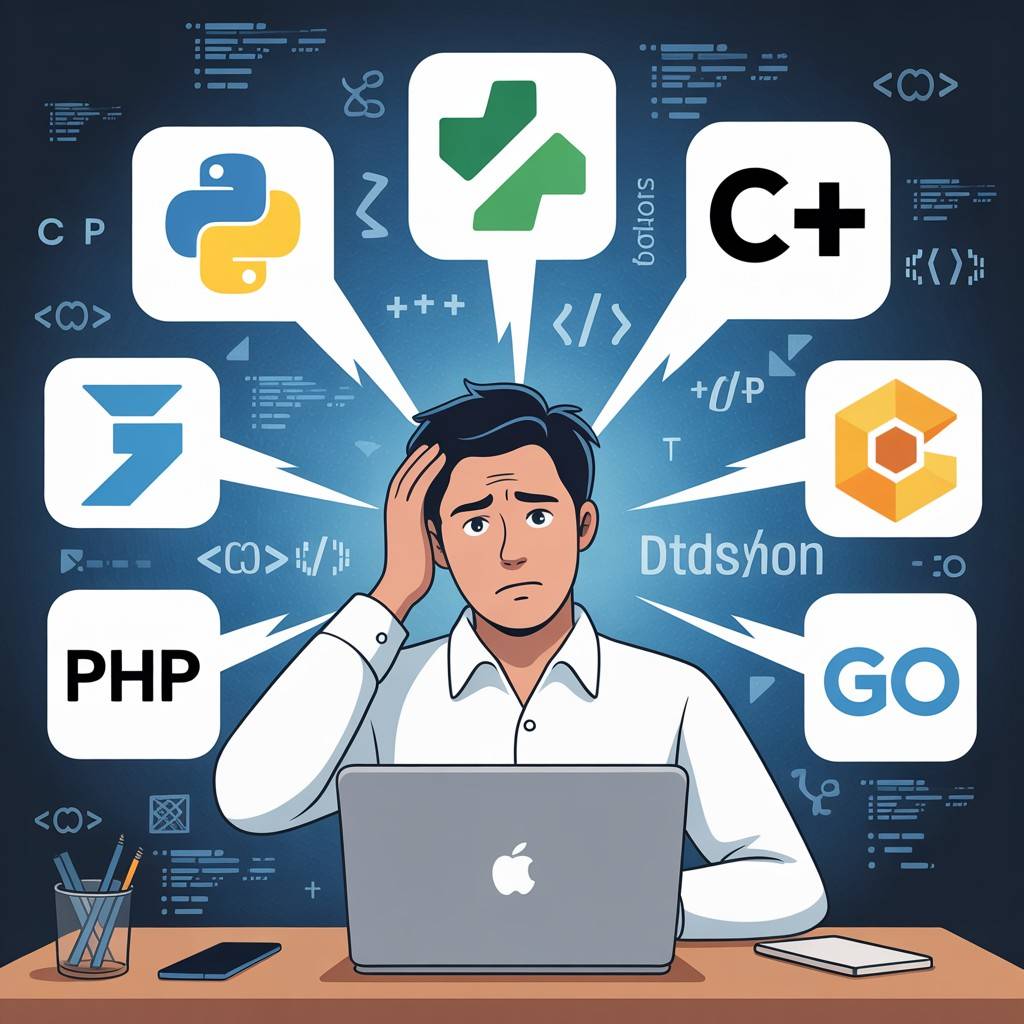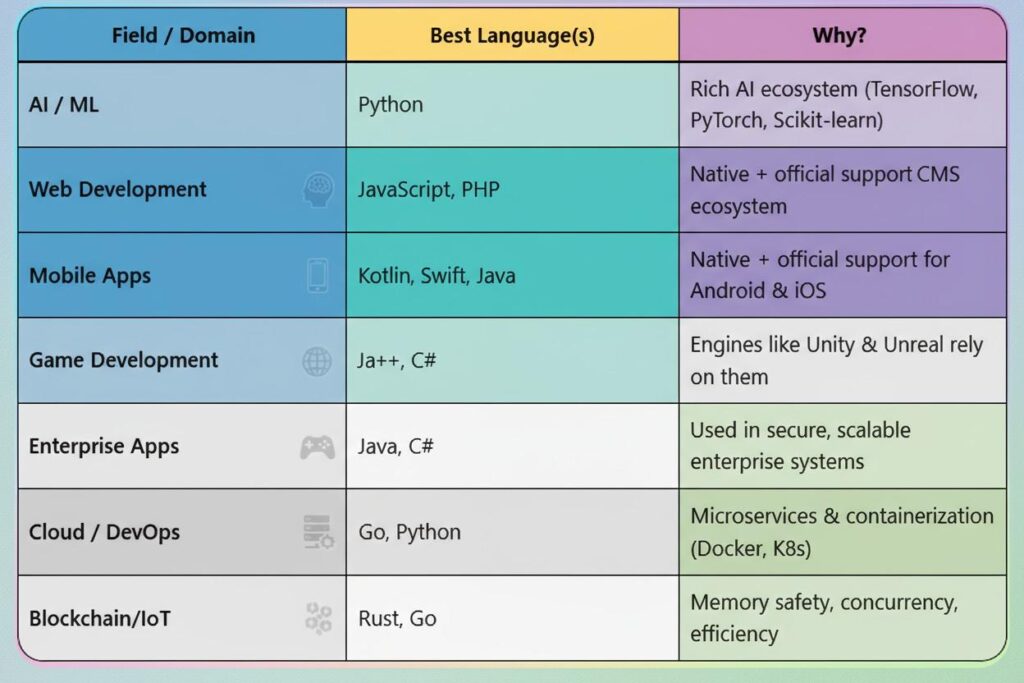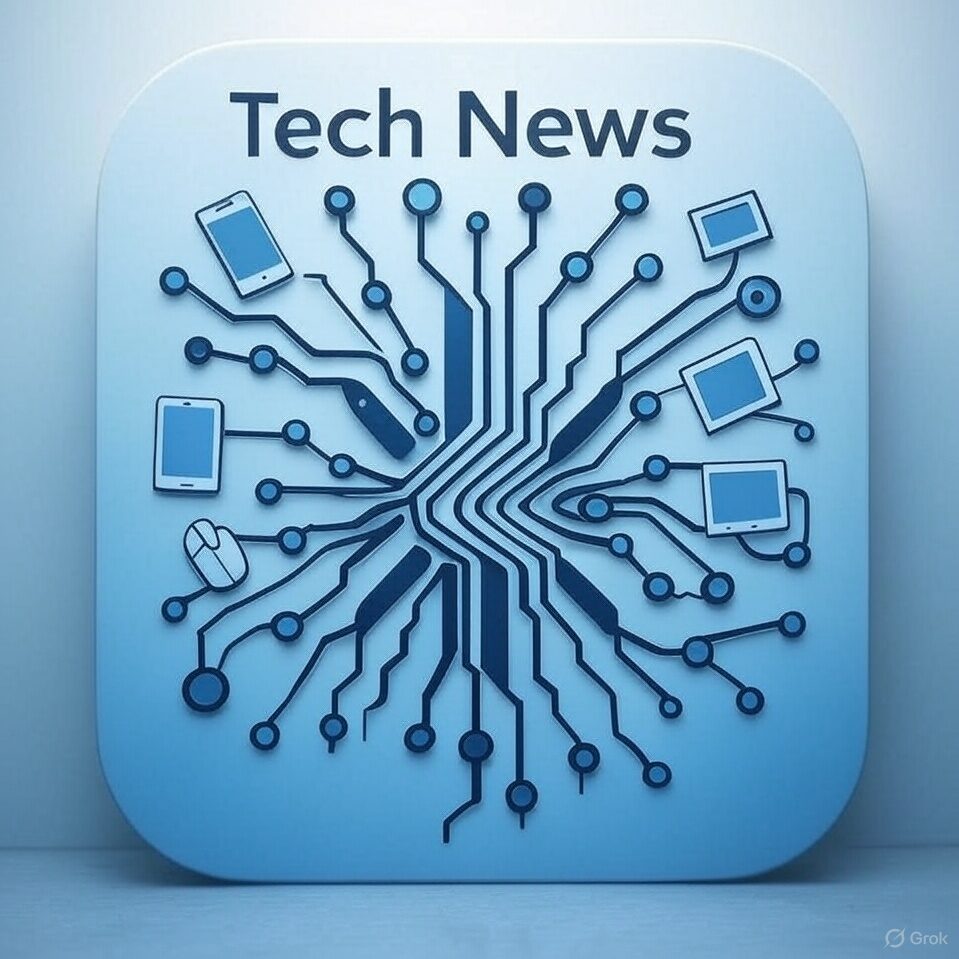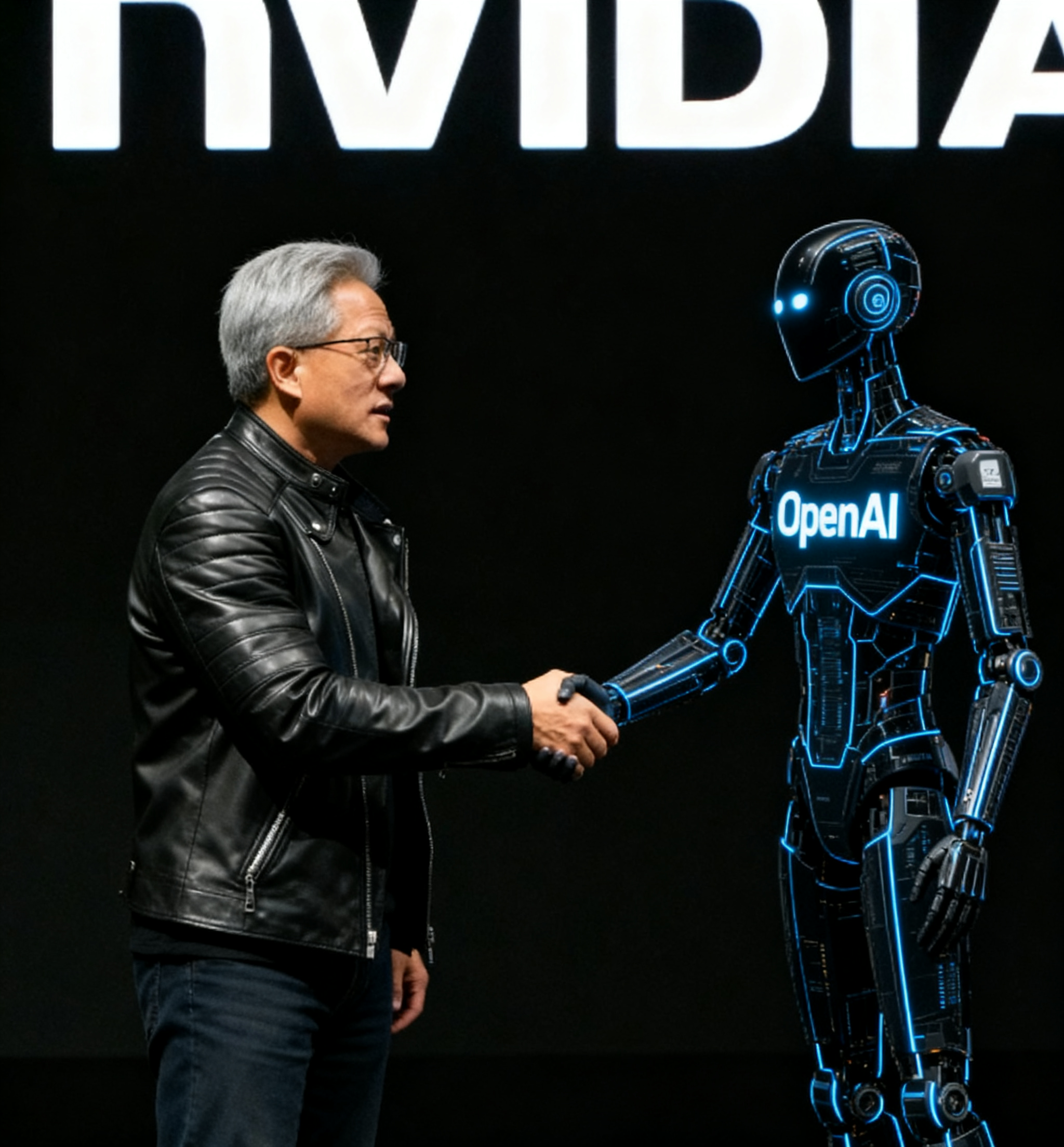
Explore the top 10 programming languages currently in demand and anticipated for the future. Gain insights into their respective spheres, usage, and potential career pathways.Python, JavaScript, Java, C++, C#, PHP, Go (Golang), Swift, Kotlin, and Rust.
Introduction to Programming languages
Programming languages are at the heart of modern technology. They not only power websites like Facebook, e-commerce platforms like Amazon, and apps like Instagram and WhatsApp, but also fuel artificial intelligence, cloud computing, game engines, IoT devices, and enterprise systems.

Choosing the right language is not just about learning syntax it’s about ensuring long-term career opportunities, adaptability to future technologies, and being able to contribute to real-world applications that billions of people use daily.
In this article, we’ll dive into the Top 10 Programming Languages, with details on their learning roadmaps, practical use cases, real-time applications, demo project ideas, and their future scope.
Top 10 Programming Languages, Roadmaps & Applications
1. #Python
- Uses: Artificial Intelligence, Data Science, Web Development, Automation.
- Learning Roadmap: Syntax basics → Object-Oriented Programming → Libraries (NumPy, Pandas, Matplotlib) → Web frameworks (Django/Flask) → AI tools (TensorFlow, PyTorch).
- Real-Time Applications:
- Netflix recommendation engine (AI)
- Instagram’s backend infrastructure
- YouTube’s video recommendation algorithm
- Demo Projects:
- AI chatbot using Flask
- Automated web scraping bot
- Predictive stock price analysis
- Scope: The #1 choice for AI and Machine Learning, Python dominates data-driven industries and will continue powering analytics, cloud services, and automation.
2. #JavaScript
- Uses: Web Development (frontend & backend), Mobile Apps (via frameworks), Dynamic UIs.
- Learning Roadmap: HTML & CSS → Core JavaScript → DOM Manipulation → Libraries (React, Angular, Vue) → Backend with Node.js.
- Real-Time Applications:
- Facebook and Instagram’s interactive feed
- Slack & Discord chat systems
- Netflix’s interactive UI
- Demo Projects:
- Real-time multiplayer drawing app
- E-commerce product catalog with React
- Weather forecast dashboard using APIs
- Scope: JavaScript remains core to modern web apps and full-stack careers.
3. Java
- Uses: Enterprise Applications, Cloud, Large-Scale Systems, Android Mobile.
- Learning Roadmap: OOP → Collections → Concurrent Programming → Spring Boot → Cloud deployment.
- Real-Time Applications:
- LinkedIn’s enterprise-scale backend
- Spotify’s Android app
- Banking/payment gateways (secure transactions)
- Demo Projects:
- Online banking system simulation
- Android quiz app
- Inventory management software
- Scope: Java has decades of corporate trust and will remain strong in enterprise companies.
4. C++
- Uses: Games, High-Performance Applications, Embedded Systems.
- Learning Roadmap: Basic syntax → Memory management → STL → Multithreading → Game engines (Unreal).
- Real-Time Applications:
- PUBG and Fortnite (Unreal Engine)
- Adobe Photoshop/Illustrator cores
- Trading systems for stock exchanges
- Demo Projects:
- Simple 2D game engine
- Performance-optimized calculator
- Multiplayer shooting game base
- Scope: Still the backbone of gaming and system applications.
5. C#
- Uses: Game Development, Desktop Applications, Web Applications (.NET).
- Learning Roadmap: OOP → .NET Framework → Unity Engine → API development.
- Real-Time Applications:
- Unity games like Pokémon Go & Ori and the Blind Forest
- Skype desktop app
- Microsoft Office suite tools
- Demo Projects:
- 3D Unity game
- Personal finance tracker on Windows
- Desktop music player app
- Scope: Heavily used in gaming (Unity), enterprise apps, and AR/VR.
6. PHP
- Uses: Web Development, CMS, Server-Side Programming.
- Learning Roadmap: Syntax → Database (MySQL) → PHP frameworks (Laravel, CodeIgniter).
- Real-Time Applications:
- WordPress (powers more than 40% of world websites)
- Facebook’s early backend
- Magento/WooCommerce for ecommerce
- Demo Projects:
- Blog/CMS clone of WordPress
- Custom ticket booking system
- Student management portal
- Scope: Still relevant for hosting dynamic websites and content-based apps.
7. Go (Golang)
- Uses: Cloud Computing, Networking, APIs.
- Learning Roadmap: Basics → Goroutines → Channels → Microservices.
- Real-Time Applications:
- Core systems behind Docker/Kubernetes
- Dropbox cloud storage backend
- Uber’s high-performance API routing
- Demo Projects:
- URL shortener API
- Real-time chat server
- Microservices for todo app
- Scope: Strong contender for DevOps pipelines, microservices, and distributed networks.
8. Swift
- Uses: iOS & macOS Development.
- Roadmap: Basics → SwiftUI/UIKit → iOS frameworks → App deployment.
- Real-Time Applications:
- Uber iOS app
- iMessage / Apple Pay
- Apple Watch health apps
- Demo Projects:
- Fitness tracking iOS app
- Voice-controlled note-taker
- Restaurant delivery app
- Scope: Core to the Apple ecosystem and wearable tech.
9. Kotlin
- Uses: Android Development, Cross-platform.
- Learning Roadmap: Basic syntax → Android SDK → Jetpack Compose → Cloud apps.
- Real-Time Applications:
- Instagram’s Android app
- Trello task management app
- Pinterest backend services
- Demo Projects:
- Expense tracker Android app
- To-do list cross-platform app
- Food delivery service app
- Scope: Now the default language for Android apps.
10. Rust
- Uses: Systems Programming, Blockchain, IoT.
- Learning Roadmap: Syntax → Ownership/borrowing → Multithreading → Blockchain contracts.
- Real-Time Applications:
- Rust in Firefox Quantum
- Solana blockchain smart contracts
- Embedded IoT firmware
- Demo Projects:
- Blockchain voting system
- IoT sensor device firmware
- CLI password manager
- Scope: Exploding popularity in blockchain/web assembly/IoT.
Comparative Table – Best Programming Languages by Domain
| Field / Domain | Best Language(s) | Why? |
|---|---|---|
| AI / ML | Python | Rich AI ecosystem (TensorFlow, PyTorch, Scikit-learn) |
| Web Development | JavaScript, PHP | Full-stack with Node.js, CMS ecosystem |
| Mobile Apps | Kotlin, Swift, Java | Native + official support for Android & iOS |
| Game Development | C++, C# | Engines like Unity & Unreal rely on them |
| Enterprise Apps | Java, C# | Used in secure, scalable enterprise systems |
| Cloud / DevOps | Go, Python | Microservices & containerization (Docker, K8s) |
| Blockchain/IoT | Rust, Go | Memory safety, concurrency, efficiency |
Expanded Demo Project Ideas
- Python → Personalized movie recommendation engine.
- JavaScript → Multiplayer tic-tac-toe game in browser.
- Java → Student attendance web app.
- C++ → Chess game with AI opponent.
- C# → VR museum tour app with Unity.
- PHP → Custom ecommerce website.
- Go → Distributed file sharing system.
- Swift → Social networking app for iOS.
- Kotlin → Weather forecast Android app.
- Rust → Secure cryptocurrency wallet.
AI in Programming
Artificial Intelligence is no longer just a field,it’s a tool developers use to code faster, smarter, and safer.
- AI Coding Assistants → GitHub Copilot, ChatGPT generate real-time code.
- Bug Fixers → AI finds & suggests fixes in your IDE.
- Auto Testing → AI builds test cases during development.
Rather than eliminating developers, AI boosts efficiency while humans handle creativity, architecture, and problem-solving.
FAQs about Programming languages
Q1. Which programming language should beginners start with?
Python is ideal, thanks to simple syntax and massive community resources.
Q2. Which language powers popular apps like Facebook, Instagram, or PUBG?
- Facebook → Early backend in PHP, now partly JavaScript & Hack.
- Instagram → Built on Python/Django stack.
- PUBG/Fortnite → Developed in C++ (Unreal Engine).
Q3. What is Virtual 3D & Virtual Reality?
Virtual 3D is a transformative technology that creates immersive, three-dimensional digital environments. Unlike 2D images that are flat, virtual 3D models simulate real-world objects and spaces with depth and realism.Want to explore in detail? check this Virtual 3D
Q3. Which programming languages offer the highest salaries?
Python (AI/Data), Rust (blockchain & IoT), and Go (cloud computing).
Q4. Will AI replace developers in the future?
No. AI acts as an assistant humans still define logic, creativity, and architecture.
Final Thoughts
Programming is the driving force behind everything we use daily from Facebook, Instagram, Netflix, and Google services to games like PUBG and Fortnite.
- Python and JavaScript remain top choices due to their universal application.
- Rust and Go are the rising stars in fields like microservices, blockchain, and system programming.
- Swift and Kotlin dominate the mobile app world, ensuring seamless user experiences.
The future belongs to developers who master fundamentals, build projects, and adapt to new technologies quickly. In the coming years, AI will only make coding smarter—not less valuable.
The best advice? Pick one language, build real projects, and specialize in a field you love. That’s how you future-proof your career.
Our New Posts:
Skill Development in UK: Trends and Priorities in 2025
How to Create a Bootable Windows USB or Partition and Install Windows: Easy in 20 min







